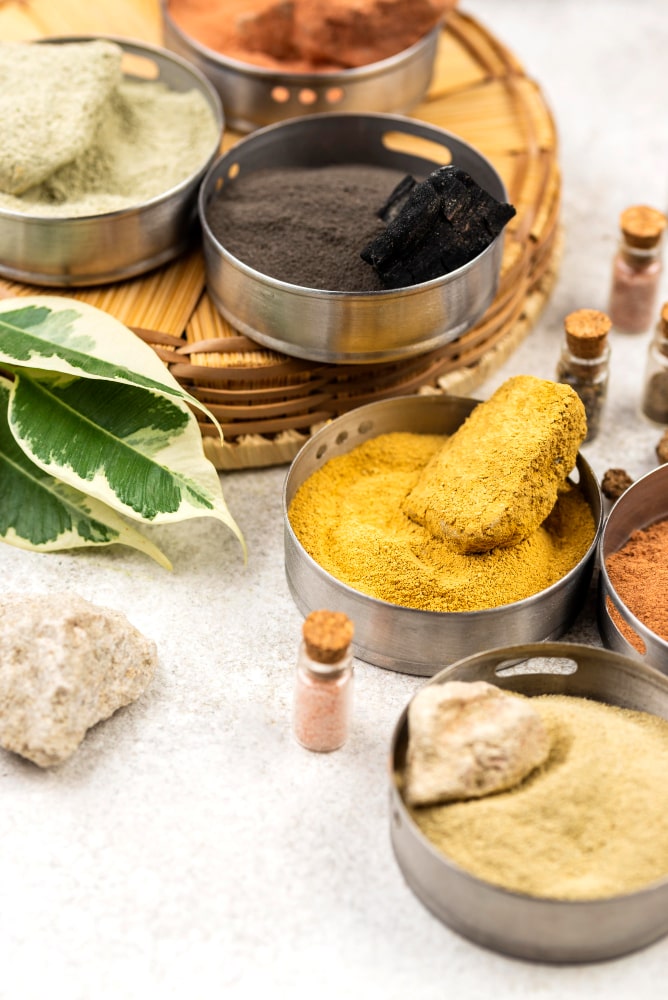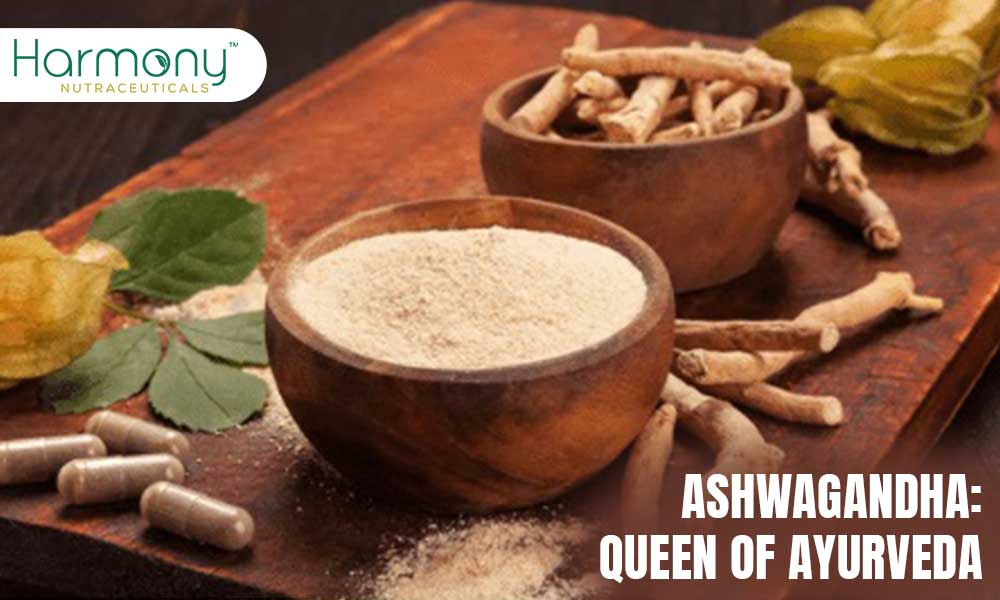Ayurveda For Arthritis: Causes, Herbs & Treatment
Arthritis, a term encompassing various inflammatory joint conditions, is a prevalent issue affecting millions worldwide. Conventional treatments focus on managing symptoms, but Ayurveda, the ancient system of medicine from India, offers a holistic approach to addressing the root causes of arthritis and improving overall joint health. This article delves into how Ayurveda tackles arthritis, including its causes, effective herbs, and treatment strategies.

Understanding Arthritis Through an Ayurvedic Lens
In Ayurveda, arthritis is primarily linked to an imbalance in the body’s doshas (Vata, Pitta, and Kapha). Specifically, the condition is often associated with an excess of Vata dosha, which governs movement and is responsible for the dryness and roughness commonly experienced in arthritic joints. This imbalance can lead to inflammation, pain, and stiffness.
1. Dosha Imbalance and Arthritis
Vata Dosha: This dosha, characterized by its dry and rough qualities, is crucial in understanding arthritis. An imbalance in Vata can lead to increased dryness and discomfort in the joints.
Pitta Dosha: When Pitta is aggravated, it can contribute to inflammation and heat, exacerbating symptoms of arthritis.
Kapha Dosha: While Kapha typically has stabilizing properties, an excess can result in joint swelling and heaviness.
2. The Role of Ama (Toxins)
In Ayurveda, Ama refers to toxic residue formed from improperly digested food. Ama can accumulate in the joints, contributing to arthritis. Effective treatment involves removing Ama through detoxification and restoring balance to the doshas.
Ayurvedic Herbs for Arthritis
Ayurvedic medicine offers a range of herbs that can help manage arthritis by reducing inflammation, relieving pain, and improving joint function. Here are some key herbs used in ayurvedic treatment for arthritis:

1. Turmeric (Curcuma longa)
Turmeric is renowned for its potent anti-inflammatory properties, thanks to its active compound, curcumin. It helps reduce inflammation and pain associated with arthritis. Turmeric can be consumed as a spice in food or taken in supplement form.
2. Ginger (Zingiber officinale)
Ginger is another powerful anti-inflammatory herb used in Ayurveda. It helps alleviate joint pain and stiffness. Ginger tea or fresh ginger in meals can provide relief from arthritis symptoms.
3. Ashwagandha (Withania somnifera)
Ashwagandha is known for its adaptogenic properties, Ashwagandha helps reduce stress and inflammation. It supports overall joint health and enhances the body’s resilience against arthritis.
4. Boswellia (Boswellia serrata)
Boswellia, or frankincense, is used to reduce inflammation and improve joint function. It is particularly beneficial for managing osteoarthritis and rheumatoid arthritis.
5. Guduchi (Tinospora cordifolia)
Guduchi is an immune-boosting herb that helps in detoxification and reducing inflammation. It supports joint health by enhancing the body’s natural healing processes.
Ayurvedic Treatment Strategies for Arthritis
Ayurvedic treatment for arthritis involves a combination of dietary adjustments, herbal remedies, and lifestyle changes aimed at restoring dosha balance and improving overall health
1. Dietary Modifications
Anti-Inflammatory Foods: Incorporate foods known for their anti-inflammatory properties, such as turmeric, ginger, and garlic. A diet rich in fruits, vegetables, and whole grains supports overall health and reduces inflammation.
Avoiding Excessive Vata-Aggravating Foods: Foods that are dry, cold, and rough can aggravate Vata dosha. Avoiding such foods helps in reducing joint dryness and discomfort.
Hydration: Drinking adequate water and herbal teas helps maintain joint lubrication and overall health.
2. Herbal Remedies
Turmeric Milk: Consuming warm milk with turmeric (golden milk) before bedtime can help reduce inflammation and improve joint comfort.
Ginger Tea: A daily cup of ginger tea can aid in reducing pain and inflammation
3. Panchakarma (Detoxification)
Panchakarma is a set of Ayurvedic detoxification procedures that help eliminate Ama (toxins) from the body.
Treatments such as Abhyanga (oil massage), Swedana (steam therapy), and Basti (medicated enemas) can help alleviate arthritis symptoms and restore dosha balance.
4. Lifestyle Adjustments
Exercise: Gentle exercises, such as yoga and stretching, help maintain joint flexibility and reduce stiffness. Specific yoga poses can be beneficial for arthritis management.
Stress Management: Techniques such as Pranayama (breathing exercises) and meditation help manage stress, which can exacerbate arthritis symptoms.

5. Topical Treatments
Ayurvedic Oils: Oils such as Mahanarayan oil and Pinda Thailam can be applied topically to affected joints to relieve pain and inflammation.
Hot and Cold Compresses: Alternating hot and cold compresses can help reduce joint pain and stiffness.
Find everything you need to support joint health.
Osteoarthritis Ayurvedic Remedies
Ayurvedic Oils: Oils such as Mahanarayan oil and Pinda Thailam can be applied topically to affected joints to relieve pain and inflammation.
Hot and Cold Compresses: Alternating hot and cold compresses can help reduce joint pain and stiffness.

1. Ashwagandha and Boswellia Supplements
Supplements combining Ashwagandha and Boswellia can help reduce inflammation and support joint health
2. Joint Health Formulations
Ayurvedic formulations like Rumatone Gold and Joint Vedic are specifically designed to support joint health and alleviate symptoms of osteoarthritis
3. Ginger and Turmeric Paste
Applying a paste made from ginger and turmeric to affected joints can provide localized relief from pain and inflammation.
Integrating Ayurveda into Daily Life
To effectively manage arthritis through Ayurveda, it’s essential to integrate Ayurvedic principles into daily life. This includes maintaining a balanced diet, adhering to a regular exercise routine, and practicing stress management techniques. Regular consultations with an Ayurvedic practitioner can help tailor treatments to individual needs and ensure optimal results.
Conclusion
Ayurveda for arthritis offers a comprehensive approach to managing and alleviating symptoms of arthritis through natural remedies, dietary adjustments, and lifestyle changes. By incorporating ayurvedic herbs for arthritis, embracing ayurvedic treatments, and adopting a holistic approach to health, individuals can find relief from arthritis symptoms and enhance their overall quality of life.
Whether dealing with osteoarthritis or other forms of arthritis, Ayurveda provides valuable tools and insights for improving joint health and managing inflammation. Embrace the principles of Ayurveda to support your journey towards better health and well-being.












